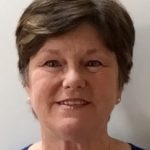Good News about Texas Schools and Disability Services
By Melody Terrell
Are you worried about children in your family with learning challenges? Have you been frustrated over the lack of services in the schools? It’s time to forget those past experiences. Today is the day to head back up to the schoolhouse for a word with the teacher, counselor, or principal. Our schools want to do the right thing and now is a great time to ask again. Texas is in the news (again) for problems related to identifying and serving children with disabilities. This sounds like bad news, but there is good news that goes with it.
We can’t change the past, but as a veteran teacher and instructional specialist, I know the schools are full of good people who want to help your child. No one goes into education to do an ‘okay’ job. We all start starry-eyed and eager. Education professionals are mostly doing the best they can with what they’ve got. Frustration with suggested “caps”, lack of funding, and inconsistent direction has stalled the quality of services for students. Problems with identification and services can change based on the attention this issue is getting in Texas right now.
Conditions that qualify for special education include autism, blindness, deafness, emotional disturbance, hearing impairment, intellectual disability, multiple disabilities, and orthopedic impairment. But there’s more. Some children do not qualify based on those categories but have other conditions which affect a life activity. ADHD and Dyslexia are high frequency disabilities that certainly affect life activities such as reading, learning, and/or caring for self. These children may qualify for other protections under the law. Section 504 of the Rehabilitation Act of 1973 requires that the needs of students with disabilities be adequately met. Section 504 of this important document requires public school districts to provide a ‘Free Appropriate Public Education’ (FAPE) including identification, appropriate needed services in regular or special education, and related aids to help with learning.
I am most familiar with dyslexia. The International Dyslexia Association estimates that 1 in 5 people are born with this brain-based learning difference. Dyslexia, a print-based learning difference, is seriously under-identified in Texas. Students with dyslexia need classroom accommodations and multi-sensory structured language lessons. Small group tutoring is not the same remediation. This translates to money spent on training and a strong core of professionals to provide this service. Done well, this 2-3 year service can make a lifetime of difference to a non-reader. Simple accommodations such as photographing assignments on the board with a smart phone are easy. Pen devices that scan and read lines of text cost more, but offer independence and dignity for the individual. Other conditions have similar services and learning aids which can help if supported by The Texas Education Agency and school administrators.
How we treat students with disabilities is in the news. The governor and the Texas Education Agency are on it. Traditional public schools and public charter schools will be taking a close look at improving. Private schools are not held to the same requirements, but many in the Waco area are faith-based. Perhaps there will be conversations about ministry to families who feel beaten down by learning differences.
The most important adult in this mix is the parent or guardian. If you have been asking for help, keep asking. Send a letter to the principal then to the director of special education if you are not getting help. Always try to work with the school first and remember that you are on the same team. It can be frustrating, but do not stop asking questions and seeking help. Your child’s future depends on it. School attendance alone will not help a child with a learning disability succeed. The right intervention and classroom support can be incredibly effective.
For more information:
- U.S. Department of Education – “Protecting Students With Disabilities” – https://www2.ed.gov/about/offices/list/ocr/504faq.html
- Texas Education Agency Dyslexia Handbook 2014 – https://tea.texas.gov/academics/dyslexia/
- International Dyslexia Association – https://dyslexiaida.org
- Learning Disabilities Association – https://ldaamerica.org
- Academic Language Therapy Association – https://www.altaread.org
 Melody Terrell is a retired public educator and a part-time private dyslexia therapist. She is certified in special education and gifted education. She is the parent of grown children with learning differences who now advocate for themselves.
Melody Terrell is a retired public educator and a part-time private dyslexia therapist. She is certified in special education and gifted education. She is the parent of grown children with learning differences who now advocate for themselves.
